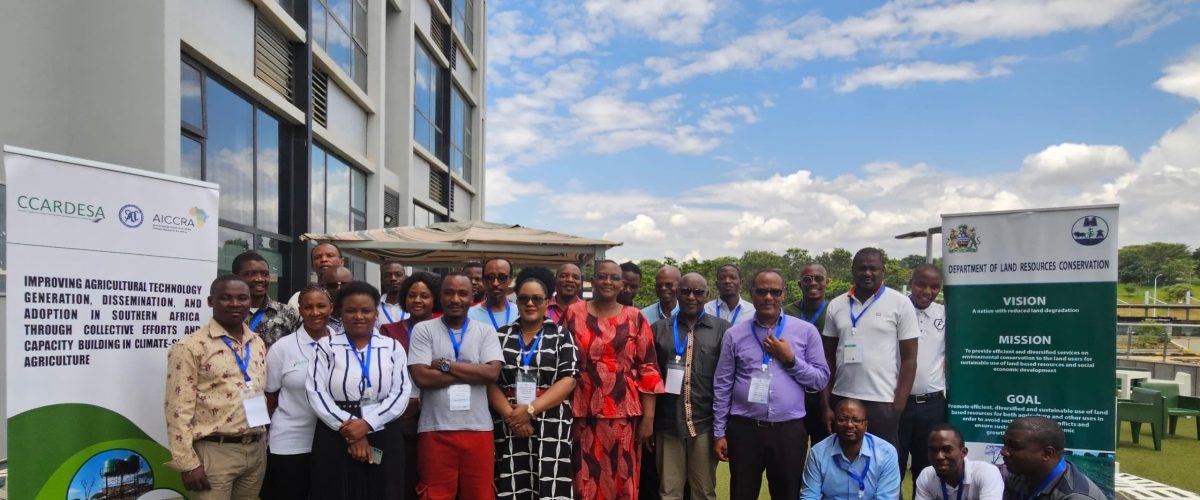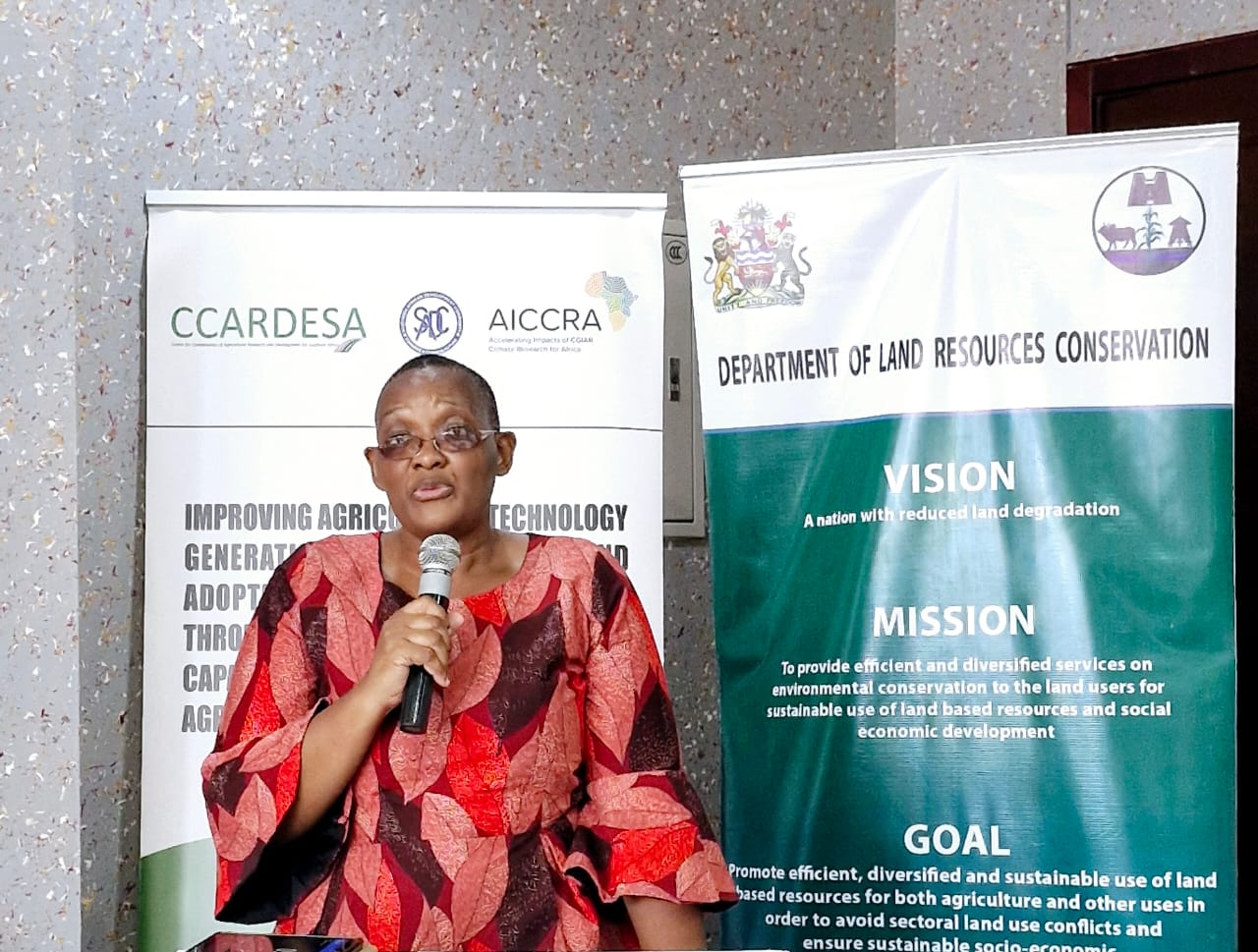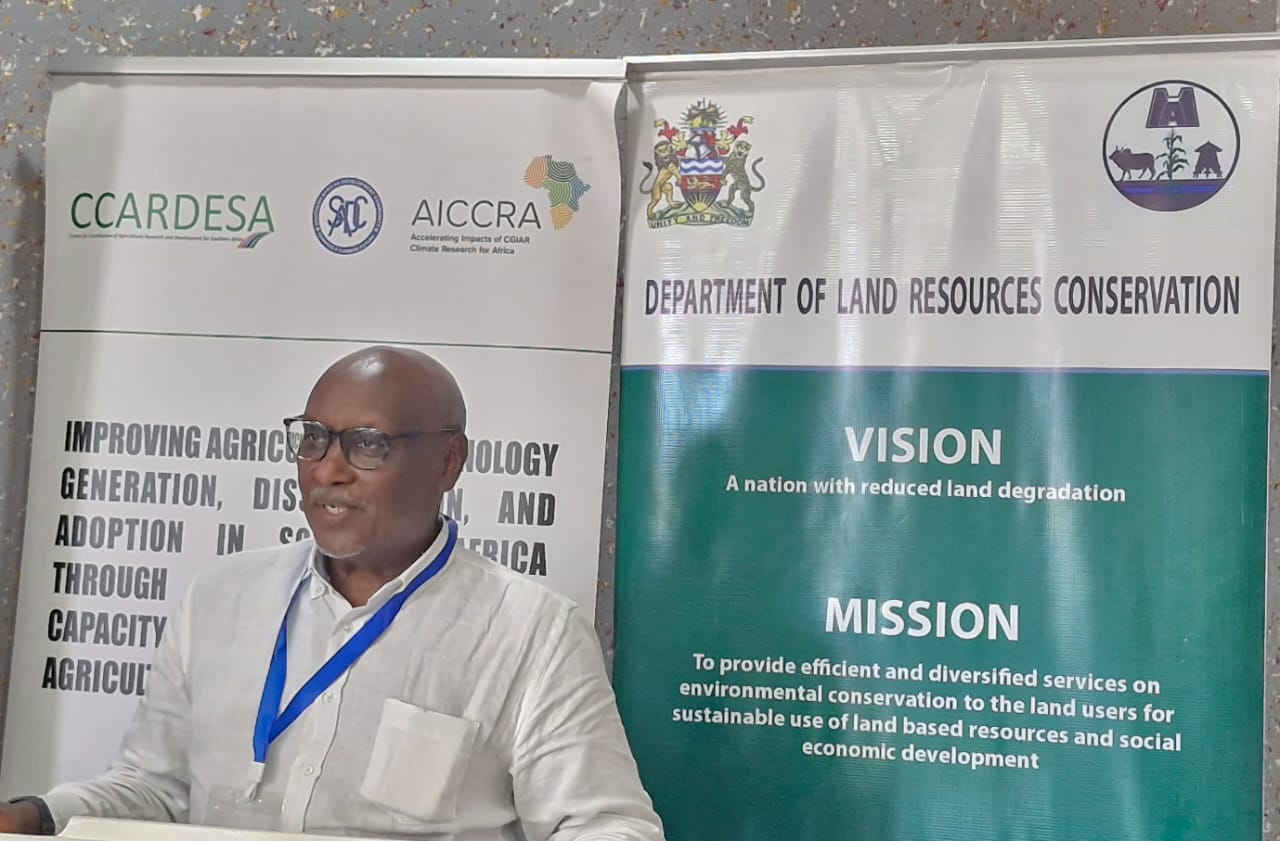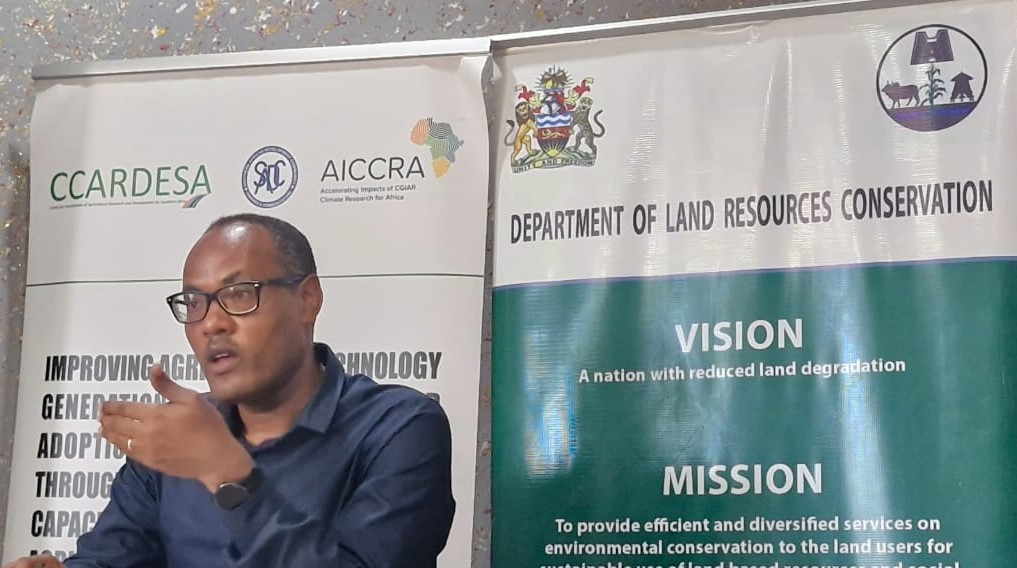
By Upile Faith Muhariwa
The Centre for Coordination of Agricultural Research and Development (CCADERSA), with support from the Accelerating Impacts of CGIAR Climate Research for Africa (AICCRA), brought together scientific experts for a Training of Trainers (ToT) Workshop at the President Hotel in Lilongwe, Malawi, from 9 to 13 December 2024.
The training was meant to impart knowledge about the likely impacts of climate variability and climate change, which helps farmers make informed management decisions to minimize risks under adverse climates and maximize production opportunities under favourable climate conditions well ahead of time. In line with efforts to reduce and minimize risks in agricultural production, the training will focus on generating and applying Climate Information Services (CIS) for agriculture to provide advisories regarding climate and its impacts on crops, livestock, fisheries, and management practices.

Participants were also trained on a methodology for predicting crop capability in various agroecological zones to enhance agricultural productivity and food security. In this regard, crop capability prediction modeling platforms use the Climate-Agriculture Modeling and Decision Tool (CAMDT) as the weather generator, i.e., an algorithm for temporal downscaling. CAMDT is used to drive the Decision Support System for Agrotechnology Transfer (DSSAT), the crop weather simulation model.
In his opening remarks, Dr. Frank Rutabingwa from the United Nations Economic Commission of Africa (UNECA) said the training was timely, particularly given the negative impacts of climate change on Southern Africa. Despite tremendous scientific and technological progress in climate-related tools, smallholder farmers still find obtaining and using agrometeorological information challenging. These challenges often result in poor productivity. To address this gap, the United Nations Economic Commission for Africa (UNECA)/Africa Climate Policy Centre (ACPC) collaborated with its partners to commission a study to develop a series of simple and robust scientific tools, methods, and services to guide planning and policy better and understand climate impacts on food security and livelihoods.
On behalf of Dr. Dawit Solomon, AICCRA-ESA program manager, Dr. Yosef Amha started his welcoming remarks by articulating the role of AICCRA in advancing agri-food science and innovation across Africa. He pointed out that the objective of AICCRA is to improve agricultural productivity, food security, and climate resilience. Dr. Amha informed the workshop participants that AICCRA operates in three sub-regions: West, Southern, and Eastern Africa. He said the tool had great potential to support crop insurance schemes aimed at mitigating agricultural output losses due to adverse weather conditions. This model, he said, might constitute a very important tool for smallholder farmers in their effort to manage climate-related risks.
Ms. Futhi Magagula, the CCARDESA Programme Officer, who spoke on behalf of the Executive Director for CCARDESA, Professor Cliff Dlamini, emphasized that “training on this tool is an important component in managing climate risks in agricultural production systems, especially in Southern African countries.” Furthermore, she mentioned that the training aligns with the Accelerating Impacts of CGIAR Climate Research for Africa (AICCRA) Project, which aims to scale up climate information services and intelligent agriculture innovations in Africa. It also aligns with CCARDESA’s sixth thematic area, which focuses on strengthening the capacities of AR4D institutions in the region.
Speaking on behalf of the Principal Secretary of the Ministry of Agriculture when she officially opened the workshop, Director of Land Resource Conservation (DLRC) Ms. Gertrude Kambauwa appreciated CCARDESA and its partners for including Malawi, even though it is not among the countries implementing the Accelerating Impacts of CGIAR Climate Research for Africa (AICCRA).

The study piloted for Malawi, Mozambique, and Zimbabwe developed a methodology or tool for predicting crop capability in the various agroecological zones to enhance agricultural productivity and food security using modified CAMDT. This informs decisions ahead of the likely impacts of climate variability or climate change. It has the potential for farmers to increase crop production and farm profitability and reduce the effects of climate risks in agriculture.
The tool is essential to saving millions of dollars in enhanced agricultural productivity, identifying deficits and surpluses with unprecedented time leads, and providing enormous potential to assure food security to nations. Livestock producers can also use weather and climate patterns information to plan the optimum number of animals on a given piece of land at any given time.
Dr. Frank Rutabingwa, representing UNECA/ACPC, expressed satisfaction with participant engagement during the training sessions for the Crop Capability Prediction Model. He acknowledged that using the model requires significant practice but is essential for real-world application. Dr. Rutabingwa stressed the need for continuous improvements and the integration of local data to enhance the model's relevance in specific national contexts. UNECA/ACPC is committed to supporting usability improvements based on resource availability, enabling member states to better enhance rain-fed agricultural productivity, which is vital for economic growth. He also encouraged ongoing collaboration among stakeholders to ensure the tool remains updated and effective in addressing the evolving challenges in agriculture across the region.

Dr. Yosef Amha from AICCRA-ESA emphasized the need for participants to integrate the Tool into their work for practical application. He called on developers to provide support to ensure efficient and accessible use of the Tool. Dr. Amha expressed confidence that demonstrating the Tool's benefits to policymakers would encourage investment in its further development. He highlighted the importance of gathering high-quality, localized data from institutions in Malawi to ensure the Tool's accuracy and relevance. He reiterated AICCRA-ESA's commitment to promoting the Tool through Training of Trainers (ToT) workshops and urged participants to champion its use in their fields. AICCRA-ESA will continue to collaborate with stakeholders to ensure the initiative's sustainability and maximize the Tool’s impact.

In her closing remarks, Ms. Magagula, representing CCARDESA, expressed gratitude to UNECA/ACPC for commissioning the Crop Capability Prediction Tool. She commended the Ministry of Agriculture for organizing the training and thanked Digitron for facilitating the session. CCARDESA acknowledged the recommendation to enhance and scale up the Tool, and they committed to mobilizing resources through the AICCRA Project and other partners. This will enable the broader dissemination of the predictive model within and across countries in the SADC region. Ms. Magagula also informed participants that regional training on the same tool is planned to accelerate capacity development efforts for its operationalization further.
Ms. Gertrude Kambauwa spoke on behalf of the Principal Secretary of the Ministry of Agriculture and noted that the workshop was successful. In her remarks, she sincerely thanked CCARDESA and its partners for bringing the training to Malawi. She also highlighted that the Ministry of Agriculture will hit the ground running by exploring different financing mechanisms to advance the Tool. She thanked the organizers, trainers, and participants for their dedication and commitment and wished everyone a safe journey to their respective destinations. The representative of the Permanent Secretary declared the ToT workshop closed.
CCARDESA, through the AICCRA project, sponsored the ToT in partnership with UNECA-ACPC and Digitron Consulting-Zimbabwe. Participants were drawn from the Ministry of Agriculture, Department of Land Resource Conservation (DLRC), Department of Agricultural Research Services (DARS), Department of Meteorology, and the Lilongwe University of Agriculture and Natural Resources (LUANAR) in Malawi.
The AICCRA project, is under East and Southern Africa cluster and resources for the training were courtesy of the World Bank.
The author is a Communication &KM Officer at the Ministry of Agriculture under the SAPP 2 Project and also a CCARDESA ICKM Focal point person for Malawi





